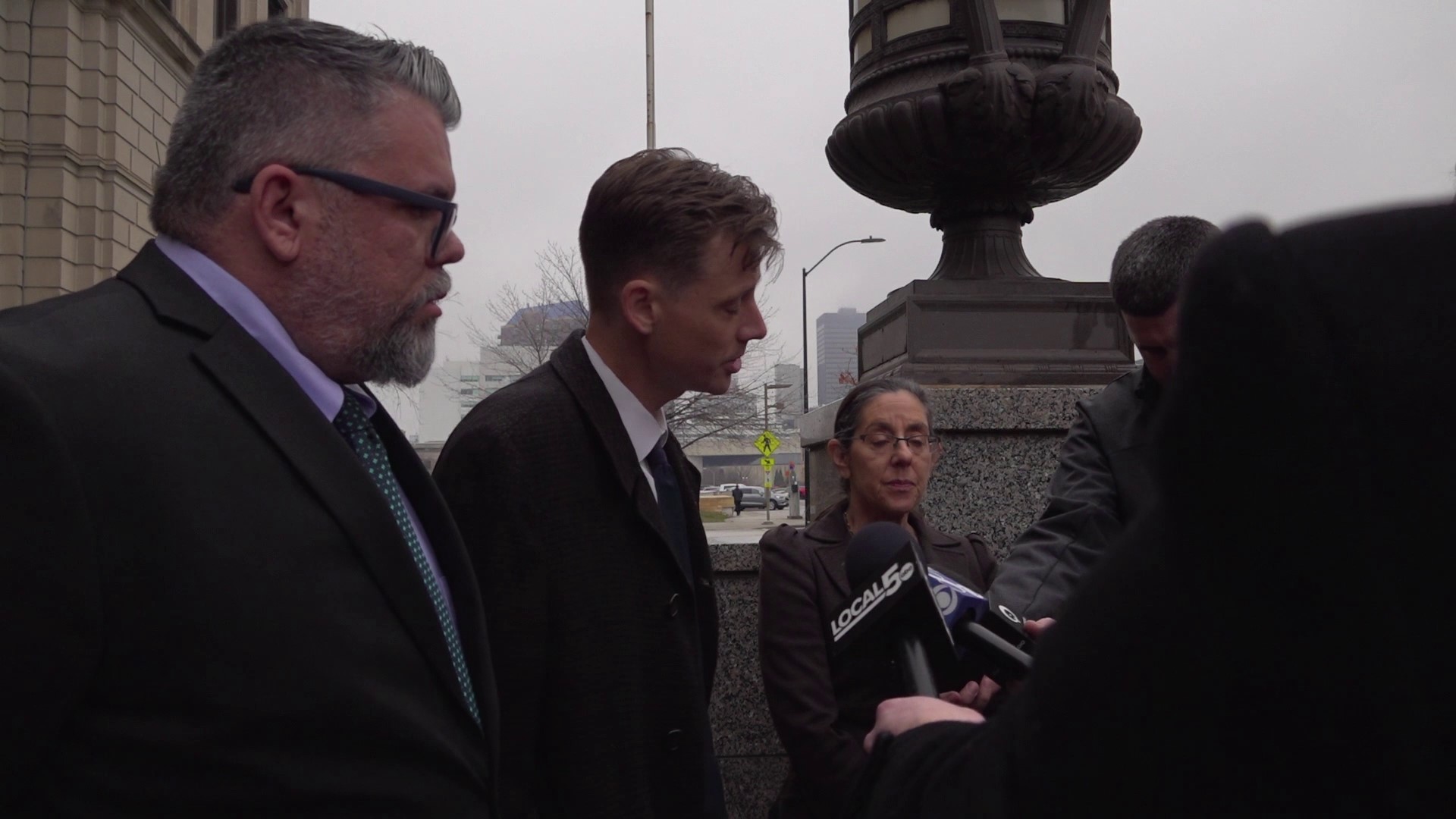DES MOINES, Iowa — The state of Iowa faced off against plaintiffs for two separate cases on Friday relating to a request for a pause on the state's omnibus education law, signed by Gov. Kim Reynolds earlier this year.
After a nearly three-hour hearing at the U.S. federal courthouse in Des Moines, District Judge Stephen H. Locher said he would announce whether he will grant the injunction on Senate File 496 by Jan. 1.
One the main arguments highlighted Friday was about the "clearness" of the law and how one can determine whether a topic, term or phrase adheres to the law.
Iowa school employees can be penalized for not following the guidelines highlighted in Senate File 496 beginning Jan. 1.
In the first case, Iowa Safe Schools and the ACLU of Iowa asked Locher to place a block on the law until a final decision were to be made on the case.
ACLU of Iowa Staff Attorney Thomas Story said Senate File 496 violates the 1st and 14th Amendments and the right to receive information. He also added the law is overbroad and vague in its language, and argued the law discriminates against LGBTQ+ students.
After Friday's hearing, Story told Local 5 their legal team felt good about the case they made.
"[We] always have felt strongly about the case we've made," Story said. "These kids have rights and we're trying to protect them, and we hope that we get them."
In the second case, the Iowa State Education Association and Penguin Random House filed a separate lawsuit in November against the state of Iowa challenging specific provisions of the law prohibiting books that depict "sex acts" from being in Iowa school libraries.
On Friday, the plaintiffs said the education law omits obscenity, like the state argued it did, but claimed it violates constitutional rights. They also mentioned educators they have spoke with have asked for guidance and clarity with the law, and said it's "vagueness" leads the legal team to believe a pause on the state law is "necessary."
Locher asked state attorney Daniel Johnston many questions throughout opening arguments, while the state backed up its previous argument that "the concern [with the law] is the explicit depictions of 'sex acts' in books."
Daniel Johnston, who represented the state in the case, argued the education law "isn't vague," but the law's provisions are "clear."
The state's legal team said they had no comment after the hearing on Friday.

